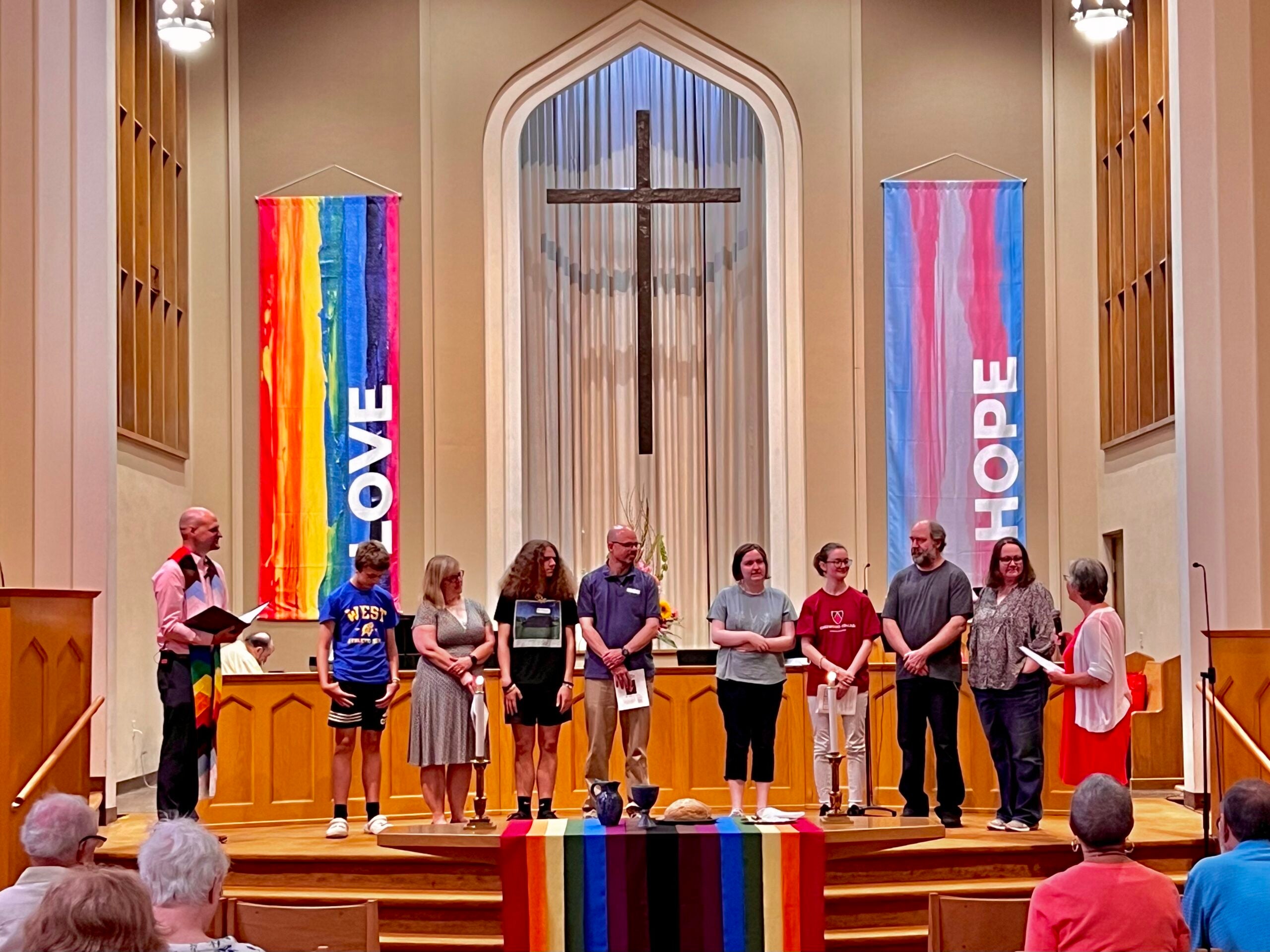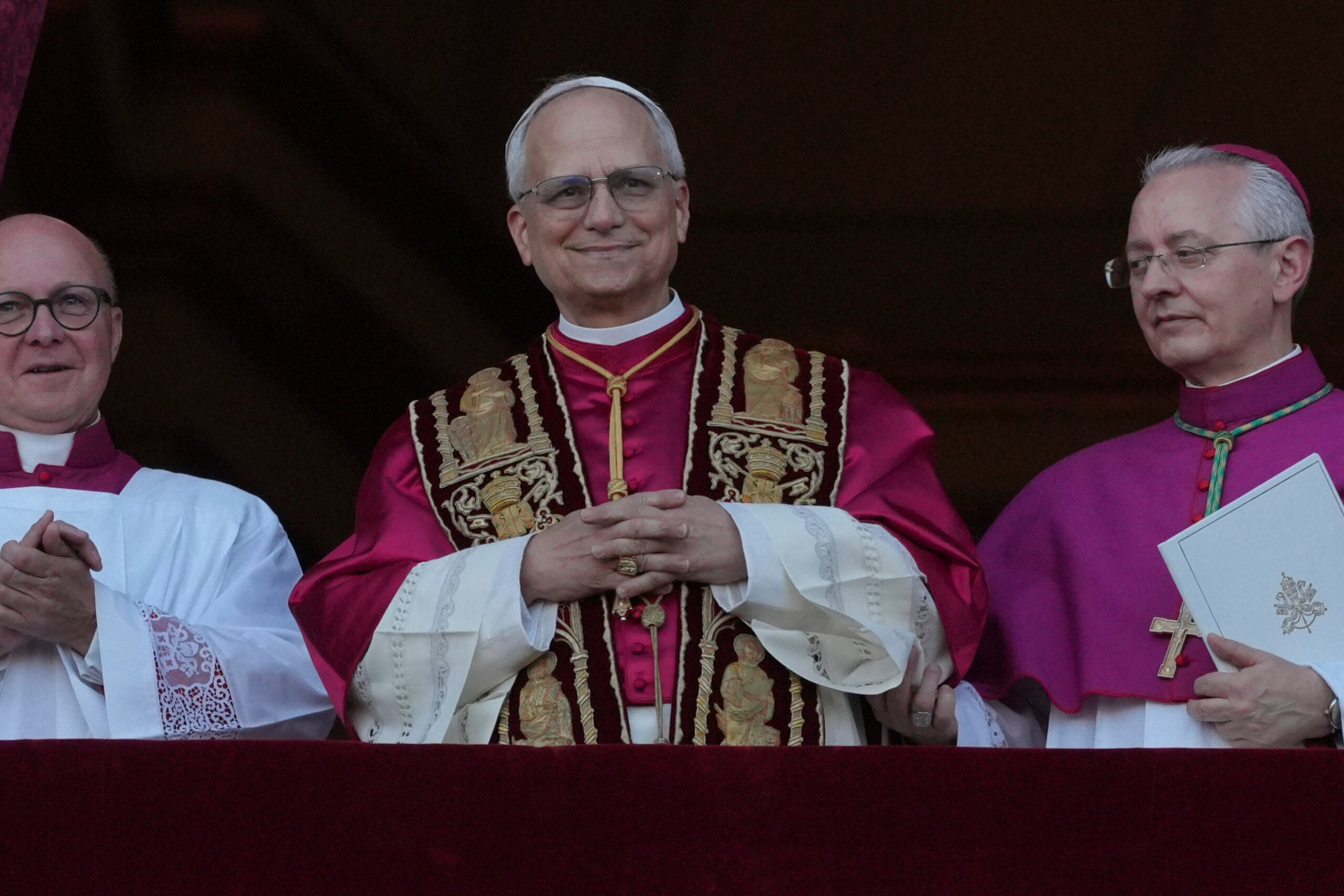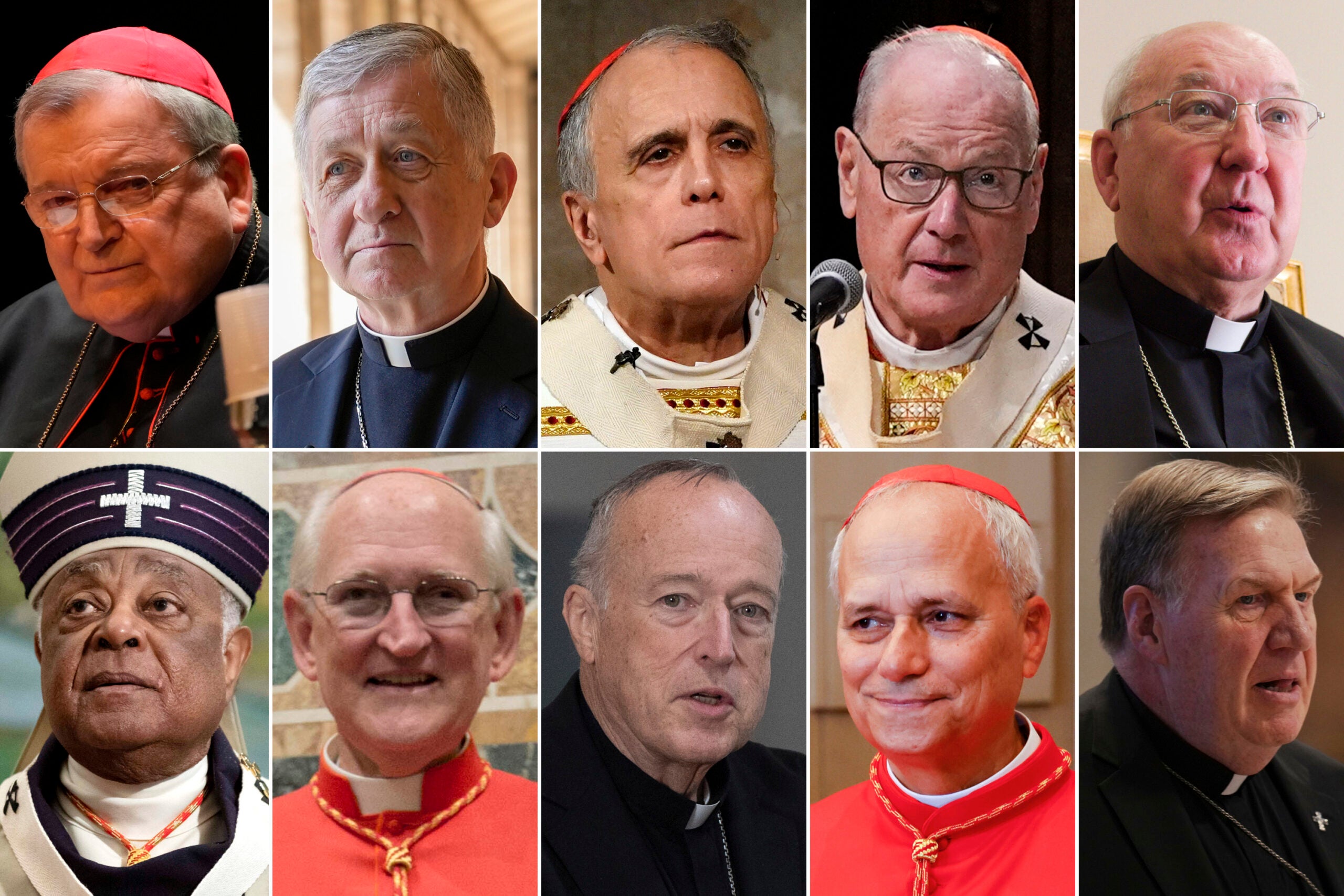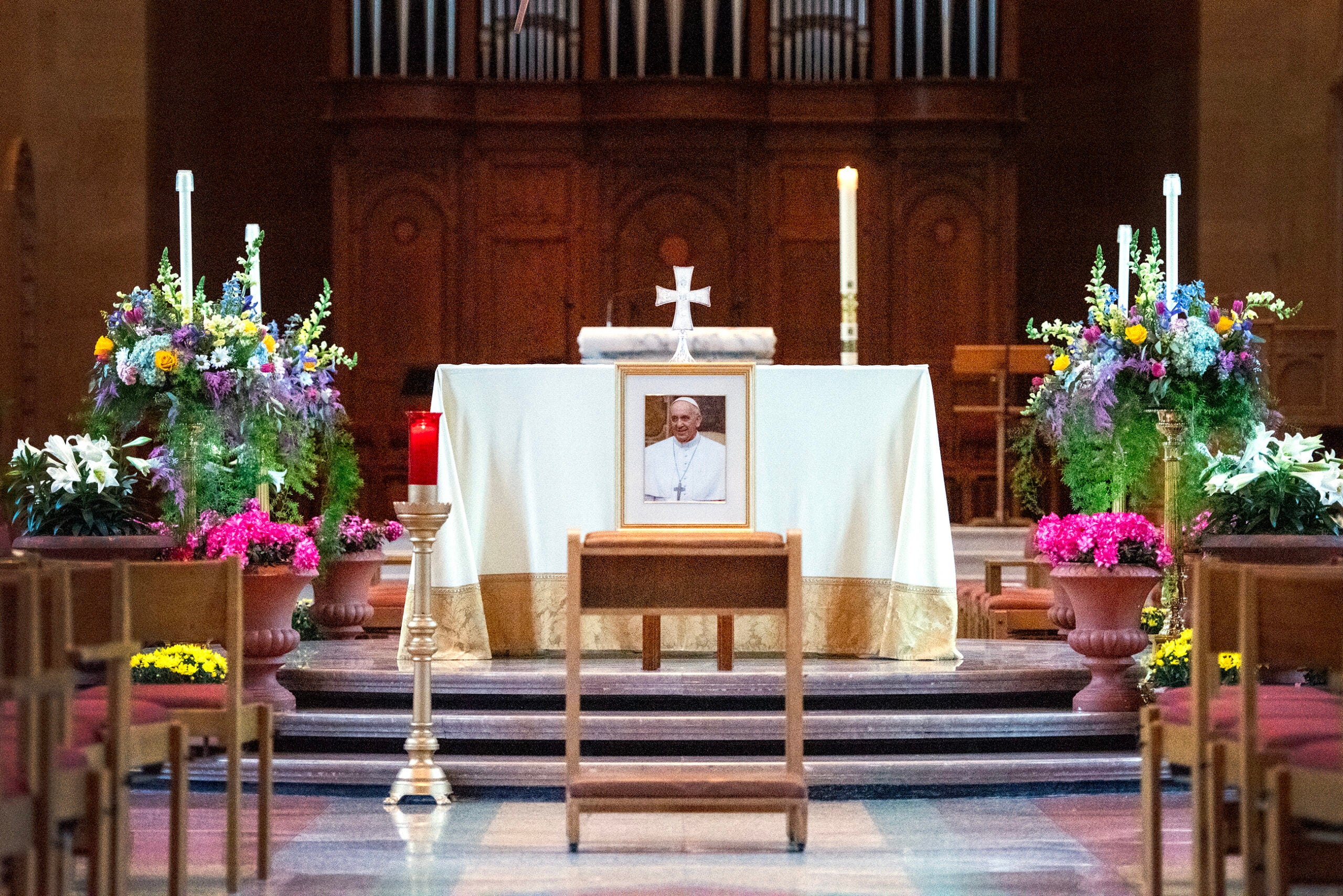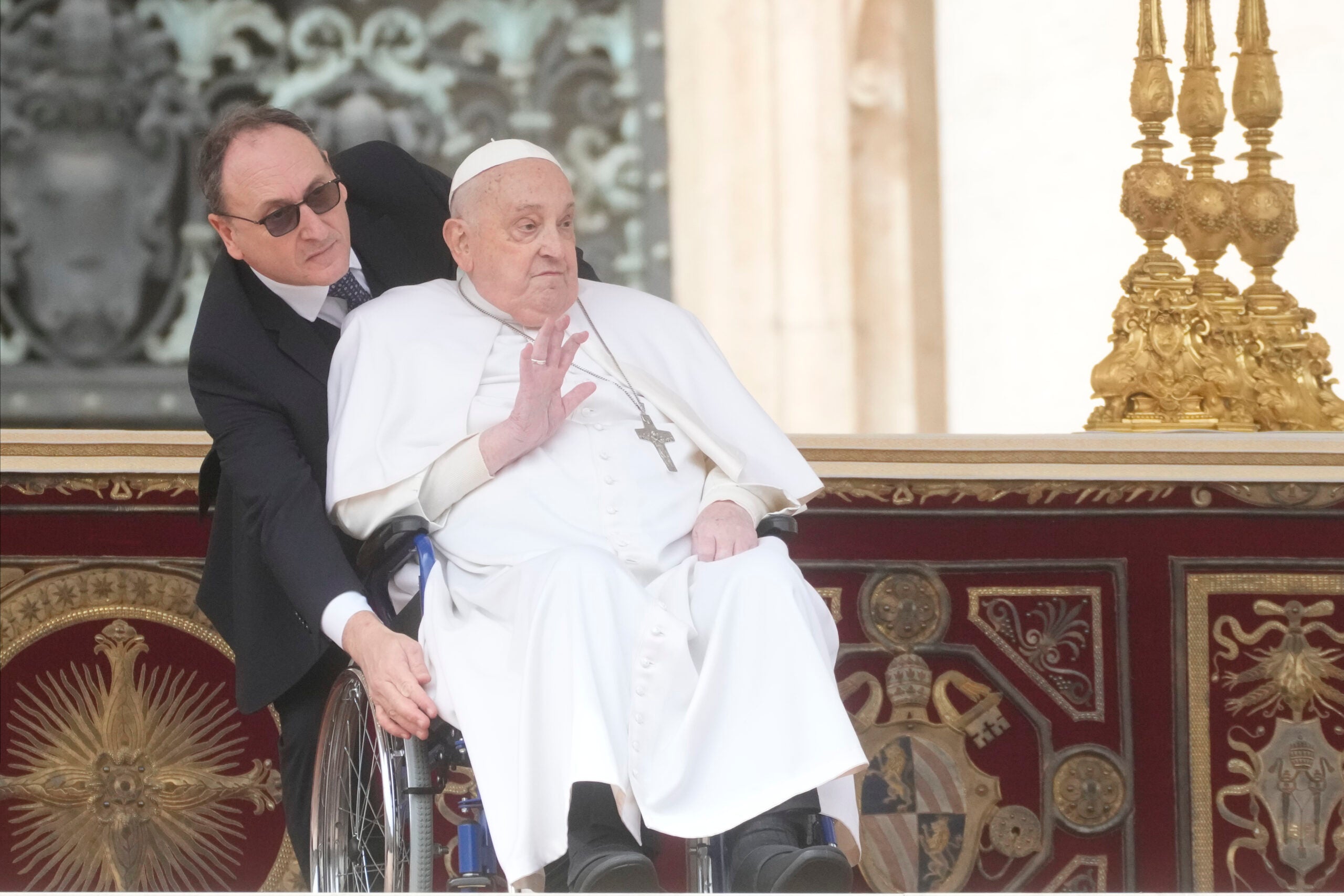Wisconsin’s Catholic leaders are stressing that Pope Francis’s declaration that priests can bless same sex couples has not changed the church’s definition of marriage.
Earlier this week, the pope issued a declaration that priests can offer spontaneous blessings to those who seek them, including to same-sex couples. While many regard the announcement a major tonal shift for the church, the document makes clear that blessings will not be given to same-sex marriage.
While some see the declaration as a hopeful change in tone for the church, others say it was unnecessary.
News with a little more humanity
WPR’s “Wisconsin Today” newsletter keeps you connected to the state you love without feeling overwhelmed. No paywall. No agenda. No corporate filter.
The declaration states in part that “when people ask for a blessing, an exhaustive moral analysis should not be placed as a precondition for conferring it. For, those seeking a blessing should not be required to have prior moral perfection.”
The document clearly states such blessings “should never be imparted in concurrence with the ceremonies of a civil union, and not even in connection with them. Nor can it be performed with any clothing, gestures, or words that are proper to a wedding.”
Blessings may be given in situations such as a visit to a shrine, a meeting with a priest, a prayer recited in a group or during a pilgrimage, according to the document.
Wisconsin’s Catholic leaders stress what hasn’t changed
The Diocese of Madison released a statement that said the Vatican’s declaration affirms that “sexual activity can never be moral outside of the marital relationship” of a man and a woman. The diocese stressed that same-sex marriages “could never be liturgically blessed” in any way “that would affirm such a relationship as morally licit or compatible with human flourishing.”
Milwaukee Archbishop Jerome Listecki was not available for an interview.
“Pope Francis is talking about a pastoral blessing that a priest may give to anyone who is seeking God’s help, not a blessing of a marriage itself. The Church’s teaching on marriage remains the same, that it is between one man and one woman,” Listecki said in an emailed statement.
Some see the declaration as a ‘major step toward openness’
Susan Ridgely is a professor of religious studies at the University of Wisconsin-Madison. She said Francis has wanted to portray the church as welcoming since early in his papacy.
She pointed to his symbols of service, such as washing the feet of young inmates.
The declaration is a “natural extension” of Francis’s olive branches to a changing world, she said.
“That’s a major step towards kind of an openness of the church and an acknowledgment that people reaching out for God should get that blessing through the church,” she said.
With the church facing declining membership in the United States, Ridgely said it is necessary to try to maintain a big tent.
“I think Pope Francis wants to have a kind of church that can speak more broadly to more folks, to have those elements of the church that might speak to more conservative Catholics and elements of the church that might speak to more progressive or liberal Catholics,” Ridgely said.
However, some Wisconsin Catholics question why the declaration was necessary.
Chris VanderBloemen is a past president of the Milwaukee Archdiocese of Catholic Women. She said she was speaking as an individual to WPR.
“Everybody should be allowed to get a blessing if they’re having problems. I think this is just more confusion. You cannot bless a union or a relationship that is sinful and a homosexual relationship is sinful,” she said. “You’re not helping someone by allowing them to think there’s a way to fudge things.”
Wisconsin Public Radio, © Copyright 2025, Board of Regents of the University of Wisconsin System and Wisconsin Educational Communications Board.



